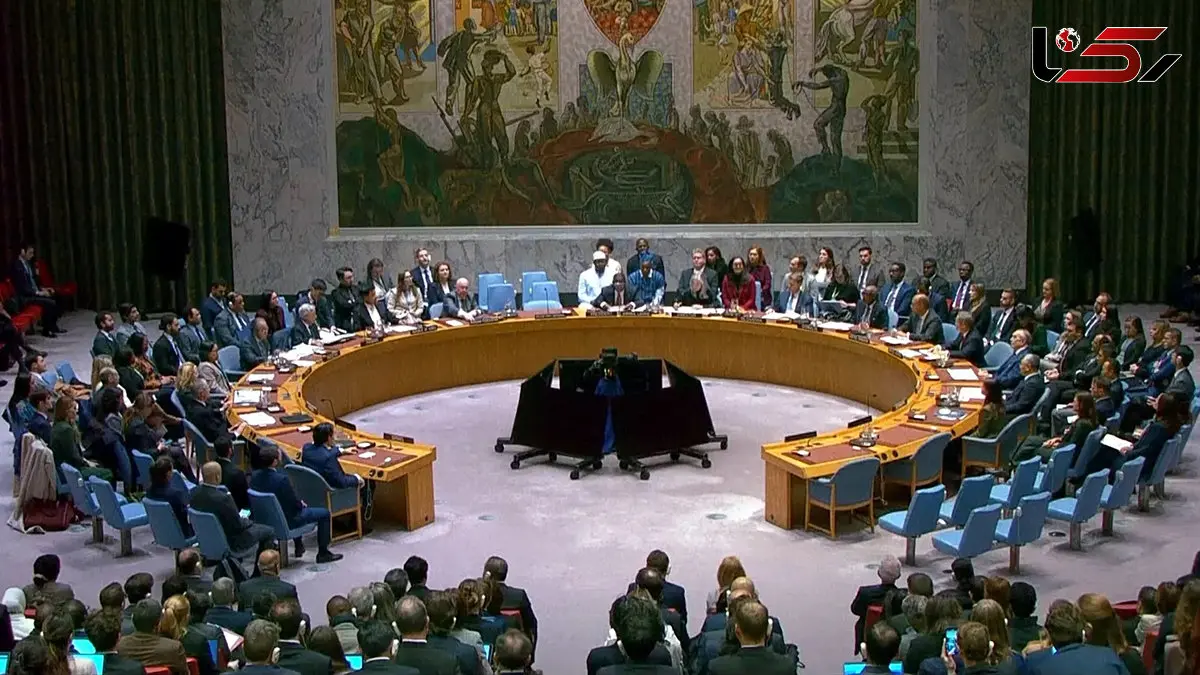UN Security Council backs Donald Trump’s Gaza proposal
Rokna Political Desk: The UN Security Council has approved Donald Trump’s plan for Gaza, endorsing an international stabilisation force and a conditional pathway toward Palestinian statehood in a rare moment of consensus despite Israeli objections and Hamas’s rejection.

According to Rokna, citing The Guardian, the UN Security Council has approved a set of proposals introduced by Donald Trump aimed at establishing lasting peace in Gaza, including the deployment of an international stabilisation force and outlining a potential route towards an independent Palestinian state.
The resolution was adopted with a vote of 13–0, while China and Russia abstained. According to the US envoy to the UN, Mike Waltz, the decision “sets a new direction in the Middle East for Israelis, Palestinians and all the peoples of the region.”
References to a sovereign Palestine were included as part of the compromise required for securing support from Arab and Islamic countries, which are expected to provide the personnel for the international stabilisation force (ISF).
Yet, just ahead of the vote, Israel’s prime minister, Benjamin Netanyahu, restated his government’s firm rejection of any Palestinian state, raising doubts about whether Israel will permit the UN-backed plan to proceed.
Following the vote, Hamas dismissed what it characterised as an imposed “international guardianship mechanism” and reaffirmed that it would not give up its weapons.
Supporters of the resolution said it should bring about the immediate removal of remaining restrictions on aid flows into Gaza, the establishment of an international stabilisation force to fill the security vacuum after an Israeli withdrawal, and steps toward reconstruction and a potential “pathway to Palestinian self-determination and statehood.”
The mention of Palestinian statehood was a negotiated addition to the original US draft, which omitted it. Even so, the language remains vague and conditional: after the Palestinian Authority reforms itself and reconstruction in Gaza begins, “conditions may finally be in place for a credible pathway to Palestinian self-determination and statehood.”
The formulation falls well short of the clear commitment to a Palestinian state sought by Arab and Islamic states, as well as European members of the council. However, in their post-vote remarks, envoys from those nations said they accepted the compromise to prolong the current truce and ensure immediate protection and humanitarian assistance for Gaza’s 2.2 million residents.
UK chargé d’affaires James Kariuki stressed that the transitional measures must adhere to international law and respect Palestinian sovereignty. Algeria’s envoy, Amar Bendjama, speaking for the Arab group, said the annex to the resolution affirms key principles. “This resolution must be read in full … it clearly states: no annexation, no occupation, no forced displacement.”
Netanyahu reportedly accepted the language after negotiations with Washington, but reversed himself amid fierce opposition from the far-right elements of his coalition. “Our opposition to a Palestinian state on any territory has not changed,” he declared on Sunday.
The decision marks an unusual moment of unified action by the Council on Gaza after two years of diplomatic stalemate, during which more than 71,000 Palestinians have been killed and accusations of genocide have been raised by a UN commission of inquiry and several human rights organisations.
The compromises needed to avoid a Russian or Chinese veto resulted in ambiguous wording that leaves several issues unresolved. The resolution grants overall authority to a “board of peace” chaired by Trump, although its membership remains undefined. This board must report to the UN but is not obligated to follow the UN’s preferences or those of the Palestinian Authority.
A Palestinian technocratic committee would also be created to oversee governance and essential services in Gaza, though it is unclear who would participate.
The ISF is empowered to dismantle and disarm armed groups such as Hamas, but it is uncertain whether any prospective contributors would agree to confront Hamas directly. No country has yet pledged forces.
Hamas reiterated after the vote that it would not lay down its arms, setting the stage for potential clashes with the international force authorised by the resolution.
Conditions for reforming the Palestinian Authority — a prerequisite for steps towards Palestinian statehood — remain ill-defined. European diplomats emphasised the urgency of quickly naming members of the technocratic committee for Gaza.
Trump hailed the vote as “a moment of true Historic proportion” on social media, promising further announcements and the naming of members of the peace board in the coming weeks.
Send Comments